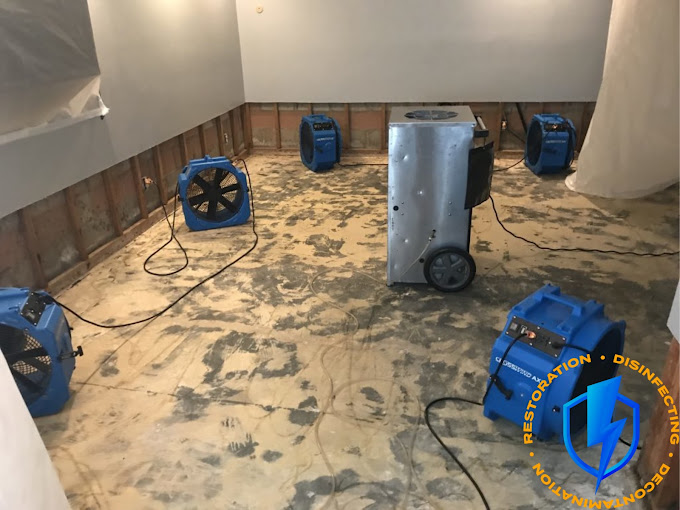Tenant insurance typically covers water damage when it is sudden and accidental. These events are unexpected and occur without warning, leading to damage to personal property within the rental unit. Some common scenarios where coverage may apply include:
- Burst Pipes and Leaking Appliances: If a pipe unexpectedly bursts or an appliance such as a washing machine or dishwasher malfunctions and leaks water, renters insurance often covers the resulting damage to personal belongings.
- Accidental Discharge or Overflow: Water damage caused by plumbing failures, heating or air conditioning system leaks, or issues with sprinkler systems may also be covered.
- Frozen Pipes: If pipes freeze and burst due to cold weather, coverage may apply as long as the tenant has taken reasonable steps to maintain heat in the unit.
This coverage ensures that tenants can recover financially if their personal items are damaged due to unforeseen water-related incidents.
Tenant-Caused Water Damage
If a tenant accidentally causes water damage, their renters insurance may provide protection depending on the policy. Some examples include:
- Leaving a Faucet Running: If a tenant forgets to turn off a faucet, leading to water overflow and damage to personal belongings, their insurance may cover the cost of replacing damaged items.
- Overflowing Bathtubs or Toilets: If a tenant accidentally causes a toilet or bathtub to overflow, resulting in damage to their possessions, renters insurance can help with the cost of repairs or replacement.
However, while renters insurance may cover personal property damage in these cases, coverage for damage to the rental unit itself varies. Structural repairs typically fall under the landlord’s insurance policy, though tenants may be liable for damages caused by negligence.
What Tenant Insurance Does Not Cover
Although renters insurance provides essential protection against many water damage scenarios, it does not cover everything. Exclusions commonly found in policies include:
| Exclusion | Description |
| Flood Damage | Renters insurance does not cover flood damage caused by natural disasters, heavy rainfall, or overflowing bodies of water. A separate flood insurance policy is required. |
| Gradual or Negligent Damage | Continuous leaks that result from poor maintenance, such as a slow dripping pipe ignored over time, are not covered. Regular upkeep is the tenant’s responsibility. |
| Damage to the Building Structure | Renters insurance does not cover repairs to walls, ceilings, floors, or other structural components of the building. The landlord’s insurance typically covers these damages. |
Understanding these exclusions is essential, as it helps tenants assess whether they need additional insurance coverage, such as flood insurance, or whether they should report maintenance issues to their landlord to prevent costly repairs.
Liability Protection in Renters Insurance
A key component of renters insurance is liability protection, which can be beneficial if a tenant’s actions result in water damage that affects others. Liability coverage may come into play in the following situations:
- Water Damage Spreading to Other Units: If water damage from a tenant’s rental unit seeps into a neighboring unit, causing damage to another tenant’s property, liability coverage may help pay for repairs or replacements.
- Accidental Damage to Landlord’s Property: If a tenant’s negligence leads to water damage that affects the rental unit itself, such as damage to cabinets, carpets, or walls, liability coverage may help pay for the landlord’s repair costs.
Liability coverage not only protects the tenant financially but also helps prevent legal disputes by ensuring that third-party damages are covered. The amount of coverage varies by policy, so tenants should review their plan to determine appropriate limits.
Steps to Take When Water Damage Occurs
If a tenant experiences water damage, taking the right steps can ensure a smoother claims process and reduce the extent of the damage. Here’s what to do:
- Identify the Source: Determine whether the water damage is due to a burst pipe, appliance failure, or another covered event. If the issue is ongoing, take immediate action to stop the water flow.
- Notify the Landlord: Inform the landlord as soon as possible, especially if the damage involves the rental unit’s structure. They may need to arrange for repairs to plumbing systems or fixtures.
- Document the Damage: Take clear photos and videos of the affected areas, including damaged belongings and any visible leaks. This documentation will be crucial for the insurance claim.
- Contact the Insurance Provider: File a claim with the renters insurance company, providing all necessary details and evidence to support the claim.
- Mitigate Further Damage: Take steps to prevent additional damage, such as drying out wet areas, removing damaged items, and using fans or dehumidifiers if needed.
Should Tenants Get Flood Insurance?
Since standard renters insurance does not cover flood damage, tenants living in flood-prone areas may need to purchase a separate flood insurance policy. Flood insurance is typically available through the National Flood Insurance Program (NFIP) or private insurers. It provides protection for personal belongings damaged by rising water levels due to:
- Heavy rainfall
- Storm surges
- Overflowing rivers or lakes
- Flash floods
Tenants should assess their location’s flood risk and consider whether additional coverage is necessary to protect their belongings from potential water-related disasters.
How to Choose the Right Renters Insurance Policy
Selecting the right renters insurance policy involves evaluating coverage options and ensuring adequate protection against water damage. Here are a few key factors to consider:
- Coverage Limits: Ensure that the policy provides sufficient coverage for personal property and liability protection.
- Deductible Amount: Choose a deductible that balances affordability with adequate protection.
- Replacement Cost vs. Actual Cash Value: Policies that provide replacement cost coverage reimburse the full price of new items, while actual cash value policies account for depreciation.
- Endorsements and Additional Coverage: If living in a high-risk flood zone or an area prone to plumbing issues, consider purchasing additional coverage.
Conclusion
Tenant insurance offers valuable protection against many types of water damage, particularly those that occur suddenly and accidentally. While it can cover damage to personal property and provide liability protection in cases where a tenant is responsible for water damage, it does not cover gradual damage, negligence, or flood-related incidents.
Understanding policy limitations and knowing when to consider additional coverage options, such as flood insurance, can help tenants safeguard their belongings and avoid unexpected financial burdens. By selecting the right insurance policy and taking proactive measures, renters can ensure they are prepared for water-related emergencies in their home.





